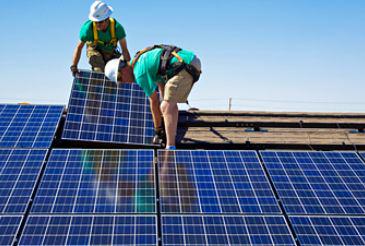If plans are not scuttled, African solar panels will supply electricity to millions of homes in the United Kingdom. A project has recently been launched that could see African solar panels exported to the UK. The project is looking for additional funding from the government.
This project is a partnership between Nur Energy, a British renewables investor, and several Tunisian investors. Ten million Euros have already been spent by the investors in the development of the site located in the southern Tunisian desert.
African solar in UK has been a long time coming
This huge initial investment didn’t just come out of a whim. The investors spend three years of concentrated solar power data collection at the site, to ensure that it is the right location for the project.
ETA of completion for solar project
If the project does not encounter formidable problems, about 2.5 million homes in the UK will get their electricity from the Tunisian made solar panels by 2018. The project, called TuNur aims to bring 2 GW of concentrated solar power to the UK. This goal is hinged on the project winning a CfD or contract for difference from the UK government.
UK Government subsidies
There are new UK government regulations on energy investing that allows subsidies to be granted to projects based outside of the UK. The Tunisian government has also passed legislation that is aimed to simplify the export of energy.
This included a contract with an Italian network operator to connect an undersea cable to a substation near Rome that will be primarily used for the project.
“This is not a back-of-the-envelope fantasy,” says Kevin Sara, chief executive of TuNur, in an interview with the BBC News. “We are working with some of the largest engineering firms in the world,” he adds.
“This is a serious project. Yes, it is risky like any big energy project is risky. But there is nothing new about moving energy from North Africa to Europe, “he explains.
The partners in the TuNur project stated that the electricity that the project will produce will be 20 per cent cheaper than those being supplied by electric utilities in the UK.
The previous failed attempts at imported solar
Several import solar energy projects were attempted before but were not successful because of lack of financial support. Kevin Sara stated that this project is different because instead of a broader scope, it has a single focus. However, the project has to overcome quite a bit of red tape before it gets the funding that it needs.
“In order to reduce costs for British consumers, any future non-UK project would need to compete on cost effectiveness with projects in the UK before being allocated a contract for difference,” says a Department of Energy and Climate Change spokesperson in a BBC News interview.
“This means that British consumers get the best deal, no matter where the electricity is generated,” adds the Decc spokesperson.
Sara allays the fear of those unfamiliar with the import solar energy project and the partners undertaking it. He reiterates that importing energy is not new because it was done in the past.



